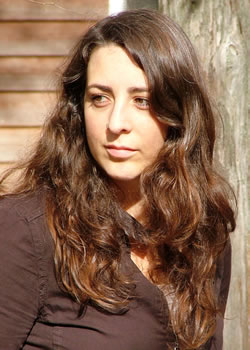|
In the summer of 2008, I was at Clarion West, the writing workshop at UC-San Diego. Each instructor met with each student for half an hour to discuss whatever topic we wanted. When I showed up at Nalo Hopkinson's door, I had two stories in hand: one by a very famous writer I revered, and one I'd written at Clarion.
We sat down on her couch. I hastened to explain, "Mine was inspired by hers. Her story is so amazing. I can't tell you exactly what she's doing, I just wish I could do it, too."
She shuffled the papers and peered down over the top of her glasses and said the last thing I expected: "Well, I think yours is better."
I was startled. I thought she'd get struck by lightning. How could she say that? Didn't she know that there was an obvious vast gulf between me and Famous Writer? How could she compare my writing to hers? I hadn't even been published yet. Surely that alone proved her wrong.
Nalo didn't mean to make a comprehensive comparison between me and the famous writer, just between the stories in front of her. But her offhand comment, and my reaction to it, stuck with me. When I got home from Clarion that summer, I created a list of my favorite writers and titled it "My Idols." But it felt wrong. I erased it and tried again: "My Models." That was still bad, and now I could tell why: I was defining myself as subordinate, and so, placing limits on who and what I could be.
I tried again: "My Peers."
That felt scary.
But also right.
Not because I ranked with my heroes, opus to opus, yet; but because I was aiming to, in the fullness of time.
Six years later, I mark that meeting with Nalo as the moment I realized the difference between admiration and idolatry. How I placed the famous writer's innate talent beyond my grasp. How I considered myself incapable of "getting" her story. Whereas, after a few years, I read that story again and know it's not perfect (and neither is mine), but one she'd arrived at just by playing with form (as had I). There was nothing essentially different about me and my capabilities, except time and practice.
However, I notice a strong culture of idolatry in American literature that restricts writers' sense of possibility for themselves—as if their idols produce nothing but genius unapproachable work; and also, as if it's not even conceivable they could ever be as good. But it's just not true.
Instead, I'd like to live in a literary culture marked by confidence and boldness. So the next time you sit down to write, make a list of your peers. No artist is too great, too holy, too famous to include—Nobel laureates or epic poets of old; Morrison, Milton, Tagore, Le Guin. Trust what you actually revere, instead of what you're told you should revere. You are what you read; surround yourself with their work.
Pin up the list over your desk. Don't stare at it; just keep it there, in your peripheral vision, like a lamp shedding light on your work space. Then write from within the fullness of time.
| 
